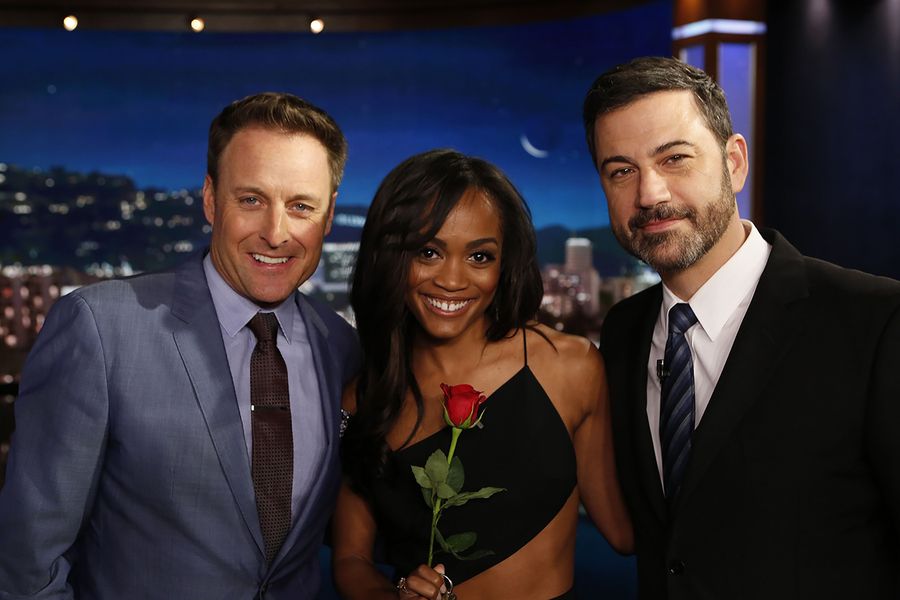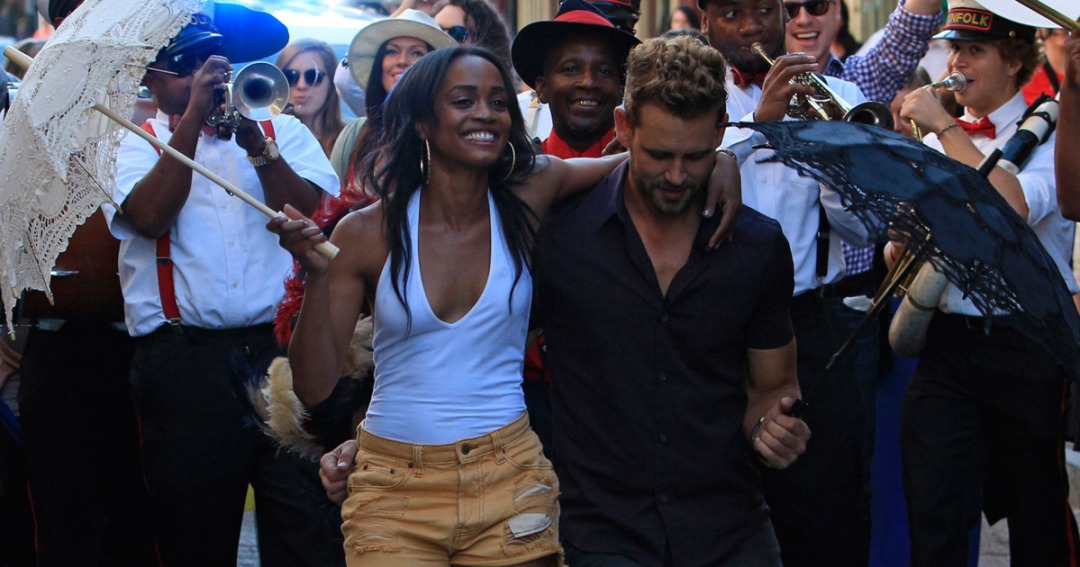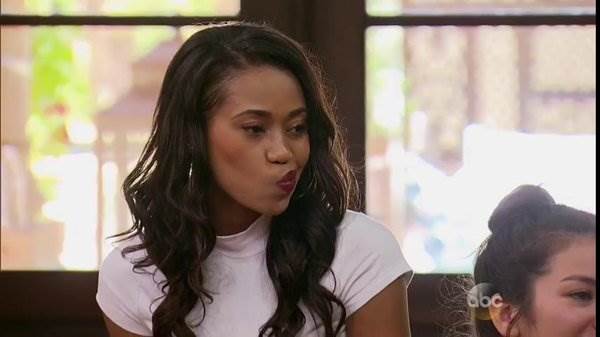 As many of you have heard, the Bachelor franchise has announced its first ever African-American Bachelorette for this coming season of the successful spinoff, The Bachelorette! Rachel Lindsay, a contestant (and I’m predicting runner-up) on the current season, Season 21, of The Bachelor has just been announced on Feb 13th as the future Bachelorette. This is the first time in 34 seasons of the successful Bachelor franchise that the producers have selected an African-American as the series’ lead, despite several viable possibilities over the numerous years. As a franchise The Bachelor has been incredibly successful and continually is one of the most popular sows on ABC. However, recently there have been calls for increased diversity on the shows, which many viewers have criticized for being “whitewashed” love stories. While there has been an increased presence of contestants of colour appearing on the series, they rarely make it past the first few weeks. Take for example, Jojo’s most recent season of The Bachelorette, in which all but three men of colour (Christian, Grant, and Ali) were eliminated on the very first night. According to Rachel Dubrofsky in her book The Surveillance of Women on Reality Television, the Bachelor franchise does a really good job of “using the rhetoric of realism” within the series to naturalize the construction of racism present within the show (30). This is possible, according to Dubrofsky, by utilizing “strategic whiteness [that] recenters whiteness, maintains whiteness as the norm and makes whiteness implicitly the desirable and, in fact, the only option” for contestants within the franchise (30). The fact that the Bachelor franchise has been so devoid of diversity in the past, made this season of The Bachelor immediately stand out. In addition to having more women of colour on this season than in any other season previously, Bachelor Nick Viall, actually selected an African American woman, Rachel in fact, to receive the coveted First Impression Rose.
As many of you have heard, the Bachelor franchise has announced its first ever African-American Bachelorette for this coming season of the successful spinoff, The Bachelorette! Rachel Lindsay, a contestant (and I’m predicting runner-up) on the current season, Season 21, of The Bachelor has just been announced on Feb 13th as the future Bachelorette. This is the first time in 34 seasons of the successful Bachelor franchise that the producers have selected an African-American as the series’ lead, despite several viable possibilities over the numerous years. As a franchise The Bachelor has been incredibly successful and continually is one of the most popular sows on ABC. However, recently there have been calls for increased diversity on the shows, which many viewers have criticized for being “whitewashed” love stories. While there has been an increased presence of contestants of colour appearing on the series, they rarely make it past the first few weeks. Take for example, Jojo’s most recent season of The Bachelorette, in which all but three men of colour (Christian, Grant, and Ali) were eliminated on the very first night. According to Rachel Dubrofsky in her book The Surveillance of Women on Reality Television, the Bachelor franchise does a really good job of “using the rhetoric of realism” within the series to naturalize the construction of racism present within the show (30). This is possible, according to Dubrofsky, by utilizing “strategic whiteness [that] recenters whiteness, maintains whiteness as the norm and makes whiteness implicitly the desirable and, in fact, the only option” for contestants within the franchise (30). The fact that the Bachelor franchise has been so devoid of diversity in the past, made this season of The Bachelor immediately stand out. In addition to having more women of colour on this season than in any other season previously, Bachelor Nick Viall, actually selected an African American woman, Rachel in fact, to receive the coveted First Impression Rose.

In light of this very obvious shift away from past seasons, I began to wonder if some of these past radicalized television practices were still true for the Bachelor franchise? I started to wonder if perhaps ABC felt like having an African-American bachelorette is a financial risk and that was possibly a reason they announced Rachel as the bachelorette so early? According to Herman Grey “the increasingly unstable crisis environment of commercial television in the mid-1980s, there was little guarantee that audiences would view programs about blacks in the kinds of numbers that would be profitable for the networks” which according to the author was one reason there was a lack of television shows with large amounts of diversity (62). It is not uncommon for the franchise to cast the runners-up as the next season’s star, however they have never announced while the person was still an active contestant on the currently airing season. This is one reason many fans have speculated that her race is one reason the producers announced Rachel so early on- in order to attract enough possible suitors before The Bachelorette begins filming in March 2017. Additionally, Grey continues to write that the “risk [of] (black-oriented programs) was limited to proven and cost-efficient genres such as situation comedy, entertainment/variety, and talk programs, because, as part of their broader strategy the networks had to complement rather than jeopardize their investments in more expensive and proven program staples such as nighttime drams and movies of the week” (68). This would seem to support the idea that ABC would want to be cautious about jeopardizing the marketability and viewership of one of the network’s most popular shows.
Additionally, it will be interesting to see how Rachel is portrayed on her upcoming season of The Bachelorette. Already on season 21 we have been seeing her edited and portrayed differently than another African American contestant and fan favourite for bachelorette, Jubilee from season 20. In the article “What Does Race Have to Do with Ugly Betty” Jennifer Esposito writes that the “black image is often informed by prominent ‘exceptions’ to the rule like Opera, who has articulated her own rags-to-riches story and succeeded against the odds” (532). Therefore, with the assimilationist, or as Esposito would call it, the post-racial environment of The Bachelor, even when women of other races are present, in order to be considered a viable mate for the Bachelor, their racial difference must be downplayed. With the case of Rachel, she very much falls into this assimilationist category, as her race is never directly referenced within the context of the show.** Therefore, this explains why Rachel would be seen by the network to be a better candidate or more acceptable Bachelorette than Jubilee. Because, as a poised and well-spoken lawyer, Rachel is seen as having successfully transcended the racial stereotype, while Jubilee’s emotional instability plays into the “crazy, black woman” stereotype. As Esposito writes, “the term ‘postracial’ has been has been utilized in increasing amounts in the media to denote some people’s perceptions that the election of Barack Obama marks a new era in our society- one in which race no longer matters” (521). If this is the case, then as Dubrofsky argues, that “a racially ambiguous character” designated as such either through ethnicity, behaviour, or editing “gestures toward inclusionary practices while at the same time foreclosing any actual engagement with issues of difference” (32). Meaning that if we are to agree with Esposito, Rachel being named as The Bachelorette is in fact not so revolutionary and only serve to reinforce the status quo in which issues of race are not directly addressed on network television. However, having said all of that, I am personally very excited for Rachel to be the next bachelorette and will be waiting impatiently for her season to air starting on May 22nd! Bachelorette viewing party at my place, everyone?!?!

(Additionally it is important to note, while talking about race within the Bachelor franchise that contestants of Asian descent often fall into the “Model Minority” category and therefore are treated, within the confines of the show, as white. Although, I will leave this discussion for another time.)
** Prior to writing this blog post I had not watched episode 8, in which Nick travels to Rachel’s hometown of Dallas, Texas. In this episode the question of Rachel’s race is very openly discussed. For their Hometown Date Rachel takes Nick to her predominately African American church and Nick is shown looking uncomfortable (despite claiming he had a good time and felt welcome) as well as being the only Caucasian person in sight. Additionally, Rachel and Nick, as well as various members of Rachel’s family, discuss the “elephant in the room” and discuss how each of them feel considering this is the first time either one of them have entered into a serious relationship with someone of the other race. Rachel’s family continues this conversation by openly asking both Nick and Rachel how they feel about being in an interracial relationship, especially in the current cultural climate. However, while the issue of race is quite openly discussed in this episode, throughout the whole season Rachel has received a consistently neutral and/or positive edit, which suggests to me that with in the context of the show as a whole, Rachel is still being positioned as a “racially neutral” character. Race matters as much in this context as it apparently matters to Nick; as he tells Rachel’s mother, I was attracted to who Rachel is, the colour of her skin just happens to be black. Therefore, since Rachel is still not shown conforming to traditional stereotypes, she is able to overcome this barrier and remain a viable recipient of Nick’s (or since we obviously know she does not receive the final rose, the man she eventual chooses on The Bachelorette) affections.